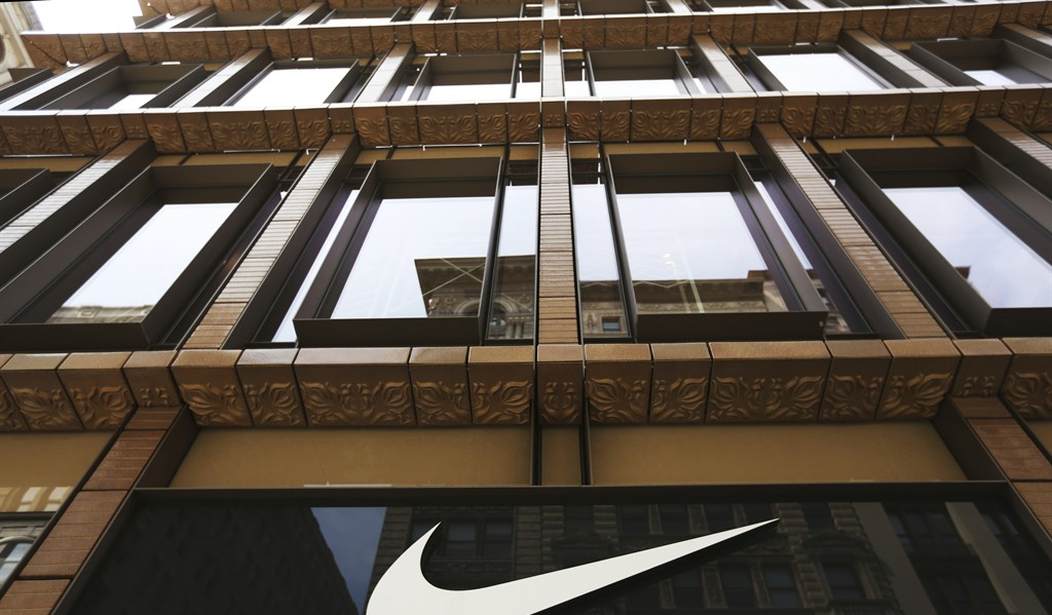There’s been no shortage of chatter in recent weeks about Dylan Mulvaney’s marketing deal to help Nike sell more sports bras. But nobody is talking about how the social influencer is promoting a company that manufactures bras made with a toxin linked to cancer.
The Center for Environmental Health (CEH) determined in October that sports bras made by Nike, which has a promotional agreement with Mulvaney, contain bisphenol A, “a well-studied chemical, known to cause developmental and reproductive harm and linked to breast cancer, prostate cancer, metabolic disorders, diabetes, and numerous other serious health concerns.”
These new findings prompted CBS News to report that BPA in sports bras may contribute to “premature death” and “was also associated with BPA exposure, a 2020 study found. More recently, BPA has also been linked to asthma in school-age girls.”
The CEH also sent legal notices to Nike and seven other sports bra brands after their research showed that some bras “could expose individuals to up to 22 times the safe limit of the chemical bisphenol A (BPA), according to California law.”
In its Notice of Violation filed under the California Health and Safety Code, the CEH noted, “Ordinary use of the products identified in this Notice results in human exposures to BPA. BPA is found in and comes out of the products. The routes of exposure for the violations are dermal absorption directly through the skin when individuals wear the products and ingestion via hand-to-mouth contact after individuals touch or handle the products.”
Not satisfied with the response to the Notice of Violations, the CEH issued a call to action in February, targeting the CEO of Nike and other companies to stop using BPA in their bras. The CEH also started a petition drive to that effect and urged its readers to “put public pressure on the companies in violation to reformulate their products to remove BPA for the health of us all.” As of April 21, the petition had 1,715 signatures.
Recommended
Setting aside the question of a biological man modeling a brassiere to increase sales for Nike, Mulvaney is profiting from his promotion of a company making products with a chemical linked to various diseases and other health risks. Mulvaney has been criticized for mockery of womanhood and women’s sports. But now, Mulvaney is mocking women’s health by taking money from a company whose bras made with BPA may contribute to ovarian cancer.
Understandably, someone who does not have ovaries might not worry much about that particular hazard. But Mulvaney may be running a personal risk of suffering erectile dysfunction and the more severe possibility of prostate cancer, both of which have also been linked to exposure to the BPA used in some of Nike’s bras.
This is just the newest aspect of what some call a war on women. Mothers are called birthing persons. Men have infiltrated women’s sports. Caricatures of women have become so offensive they’ve been compared to blackface performers in minstrel shows. There is a new front in this war with Mulvaney’s promotion of a company that manufactures bras made with a chemical linked to all manner of diseases that might harm the women who wear them.
If the CEH is petitioning the head of Nike to stop making sports bras with BPA, perhaps they might consider a similar petition drive for Mulvaney to stop promoting Nike. It would certainly align with the mission of the CEH, which is vocal in warning of the dangers of “endocrine disrupting chemicals” that increase the risk of breast cancer, and they seek to increase public awareness of those risks. “Whether you’re a man, woman, non-binary, transgender, or you’re over 50 or are young enough to know how Tik Tok works, breast cancer affects us all,” wrote the CEH in 2021. They’re not wrong.
The Center for Environmental Health could have a significant impact by demanding that Mulvaney stop promoting Nike sports bras. But there’s a rub. Mulvaney makes a lot of money as a social media influencer, and Nike sports bras are part of that revenue stream, so he’d have to decide which is more critical, greed or human compassion.
Whether concern for public health is, enough incentive for Mulvaney to stop promoting a company that makes bras using a chemical linked to cancer remains to be seen. But we’ll never know if we don’t try. If enough people contact the CEH and encourage them to do that, it might make a difference.
























Join the conversation as a VIP Member